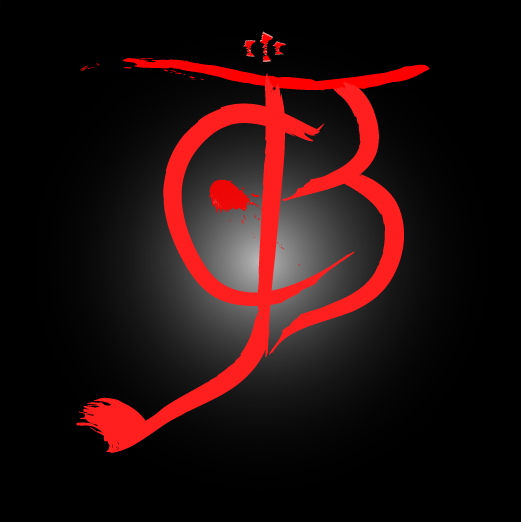
February 13, 2008
I was watching the Colbert Report the other night (on the internet, as I do not own a TV--which, by the way, is a good reason I support the writers' strike of the past few months), and his guest was Philip Zombardo, author of the book, The Lucifer Effect. As usual, it was funny, with Colbert's character poking inane holes into the guest's points. And then Colbert seemed to shift into a more serious tone, more, I presume, himself, when the idea of Satan's rebellion (and the origin of Evil and Hell) came up.
I've known (I forget how I learned) that Colbert teaches Sunday School, and therefore he knows what he's talking about in these matters. I trust him as a relatively-informed authority. (though, unfortunately, I do at times wonder if and how he twists things through his character.) I am always on the lookout for insight and ideas about the Rebellion of Satan, about God's reaction to it, about Evil and the like in our own mythology, so that I can see how it might correspond to my invented myths.
Zombardo was basing a particular argument (about authority and rebellion) on the idea that after Satan's rebellion, God created Hell as punishment for his disobedience. Colbert responded that it was not God who made Hell, but Satan, through his very act of disobedience that created Hell, what Colbert defined as the "absence of God's Love."
I thought this was delightful! And marginally disappointing. It conforms remarkably to my own invented myth (with Dellithis in the place of Satan, and Aya in the place of God). Yet it was not Dellithis's pride, disobedience, or rebellion that made him turn from Aya's Love, but his Despair. This is a point I have made before, so I shouldn't dwell on it (though I might). Yet the interesting thing I found was that "Evil" was made out of the same event in both my myth and the Christian myth: removal from God's Love. What's more, my current concept of "Hell" (by default, the opposite of "Heaven", or Nevinmir) for the only "mortal" beings in my invented world is, in fact, basically the absence of God's Love. It is not a burning, terrible, eternal torture, but the Void, a loss of identity and consciousness. (Earlier in this journal I wrote about the name of the Void being derived from the words "before Thought".)
I was delighted because Colbert's statement helped solidify some of my ideas about my mythology, but at the same time I was a little disappointed by how closely it conforms to Christian myth. I suppose that is not entirely a bad thing: if one assumes that a Creator invented free will but not evil, then the arising of evil must come from somewhere. Many other Fantasy mythologies suppose a dual-creator role to account for this (with the idea of siblings, or other equal-but-opposite creators, one for good, one for evil), and my own myths incorporate this idea to some degree: Eri and Kuri (Shayatsi names) are the expressions upon Raya (the world) for good and evil, or preservation and destruction, and these two personifications are indeed given a measure of free will themselves by the Creator. This is why the so-called "Children of Raya" (those races created by Raya, through the actions of Eri and Kuri) have myths that center on those two (perceived as brothers) and only marginally include the Lladha or Aya. This is, in fact, one of the ways in which I am trying to make all myths on the world ultimately "true".
My disappointment probably derived from my self-definition as a non-Christian. However, I am content that there is more to Christianity than this simple idea of Hell and Evil--the religion defines itself through the person of Jesus Christ (as a worldly personification of God's Love). Thus acceptance of Jesus is a metaphoric acceptance of God's Love, and a personal rejection of Hell. This is not how it works in my invented Myth-Reality. There is no "Christ"-styled figure, Aya never came into the world. His Love is incorporated in all creatures as love, empathy, pity (self-less pity, e.g. Frodo toward Gollum), forbearance, etc. Thus accepting these things within yourself, and not turning to "evil" action, is a de-facto acceptance of Aya's Love--and welcome to Nevinmir (Heaven) in death. Rejection (evil action) results in self-rejection of Aya and thus condemnation to the Void ("Hell").
This creates a hierarchy between good and evil, with good being the preferred and "correct" position and evil being the derangement or pathology. Thus all creatures ought to strive for "redemption", and those who fall to evil have "failed". This also means, because Aya created all things (including free will), that Good must triumph. It is a generally optimistic point of view, I suppose.